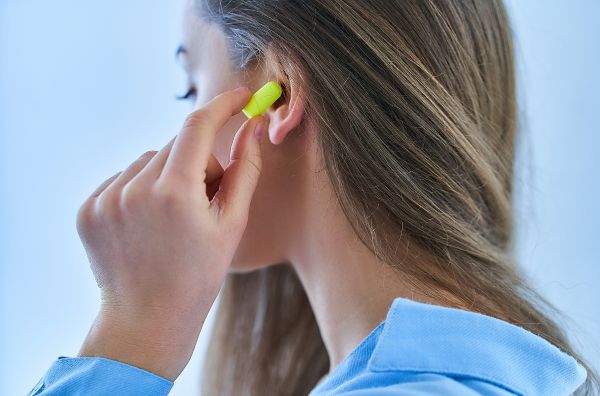Our ability to hear is something many of us take for granted until it starts to decline. Whether it’s due to age, noise exposure, or other factors, hearing loss can significantly impact our quality of life. Fortunately, there are steps you can take if you’re wondering how to protect your hearing and maintain your auditory health. Here are some expert tips from the ENT specialists at Florida E.N.T. & Allergy to help you safeguard your hearing.

1. Limit Exposure to Loud Noises
One of the most common causes of hearing loss is exposure to loud noises. This can occur from a variety of sources, including concerts, loud music through headphones, power tools, or even everyday environmental noise. To protect your hearing:
Use Ear Protection
When you know you’ll be exposed to loud sounds, such as at a concert, while using power tools, or during other noisy activities, always wear ear protection. Earplugs or noise-canceling earmuffs can reduce the sound level and prevent damage to your ears.
Follow the 60/60 Rule
When using headphones, keep the volume at no more than 60% of the maximum and limit listening time to 60 minutes at a stretch. Prolonged exposure to loud music can lead to permanent hearing loss.
Be Mindful of Your Surroundings
Avoid standing directly in front of speakers at events, and if you find yourself in a noisy environment, take breaks in quieter areas to give your ears a rest.
2. Maintain Good Ear Hygiene
Keeping your ears clean is important, but it’s also crucial to avoid over-cleaning, which can lead to problems like earwax impaction or infections.
Avoid Q-tips
Many people use Q-tips to clean their ears, but this can push earwax deeper into the ear canal, causing blockages or even damaging the eardrum. Instead, clean the outer ear with a damp cloth and let earwax naturally exit the ear canal.
Regular Checkups
Have your ears checked regularly by an ENT specialist, especially if you notice symptoms like ear pain, hearing loss, or a feeling of fullness in your ears. Regular checkups can help catch issues early before they become serious.
3. Manage Chronic Health Conditions
Certain health conditions, such as diabetes, high blood pressure, and cardiovascular disease, can affect your hearing. These conditions can damage the small blood vessels in the inner ear, leading to hearing loss.
Control Blood Sugar and Blood Pressure
Keeping these conditions well-managed through diet, exercise, and medication can help protect your hearing.
Avoid Smoking
Smoking can also contribute to hearing loss by reducing blood flow to the inner ear. If you smoke, consider quitting to protect your hearing and overall health.
4. Be Aware of Ototoxic Medications
Some medications, known as ototoxic drugs, can damage the ear and lead to hearing loss. These include certain antibiotics, chemotherapy drugs, and high doses of aspirin.
Consult Your Doctor
If you’re prescribed a new medication, ask your doctor about its potential impact on your hearing. If you’re taking an ototoxic medication, your doctor may monitor your hearing and suggest alternatives if possible.
Report Any Changes
If you notice any changes in your hearing while taking medication, such as ringing in the ears (tinnitus) or hearing loss, contact your doctor immediately.
5. Get Regular Hearing Screenings
As we age, our risk of hearing loss increases, even without exposure to loud noises or other risk factors. Regular hearing screenings are an important part of maintaining your hearing health.
Start Early
Hearing loss can occur at any age, so it’s important to start regular screenings early, especially if you’re exposed to noise regularly or have a family history of hearing loss.
Follow Up on Any Concerns
If a hearing test shows signs of hearing loss, follow up with an ENT specialist to discuss your options on how to protect your hearing. Early intervention can help slow the progression of hearing loss and improve your quality of life.
6. Protect Your Ears from Water
Water can introduce bacteria into the ear canal, leading to infections like swimmer’s ear, which can affect hearing.
Use Earplugs When Swimming
Whether in a pool, lake, or ocean, wearing earplugs can prevent water from entering your ear canal.
Dry Your Ears Properly
After swimming or bathing, gently dry your ears with a towel. Tilt your head to let any trapped water escape, and consider using over-the-counter ear drops to help dry out any remaining moisture.
Experience Expert Hearing Care at Florida E.N.T. & Allergy
Protecting your hearing is essential to maintaining your overall quality of life. At Florida E.N.T. & Allergy, our team of specialists is dedicated to helping you preserve your hearing through comprehensive care and personalized treatment plans. Whether you need a hearing screening, treatment for hearing loss, or advice on preventing hearing damage, we’re here to support your auditory health.
Click here today to schedule an appointment and take proactive steps to protect your hearing.

